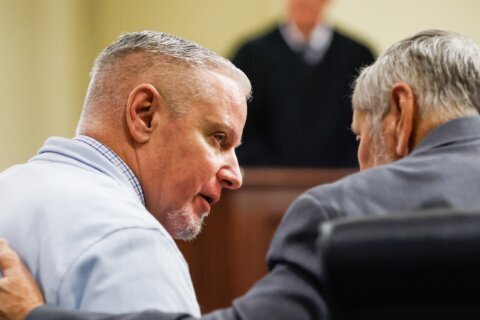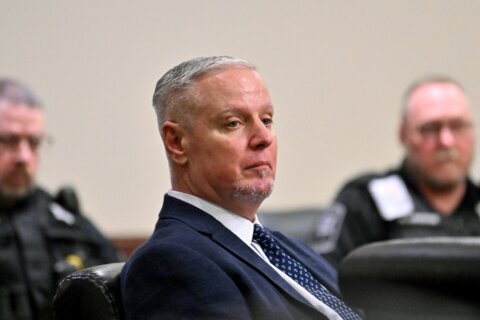In a first-of-its kind ranking of how all 50 states and D.C. compare when tackling issues related to mental health in young people, the District ranked 3rd, Maryland 10th and Virginia 21st.
Pennsylvania ranked No. 1, but overall, a new report card concluded that mental health issues among young Americans amount to a growing crisis and most school systems across the D.C. region and nationwide do not have enough resources to adequately help students.
The national report card, released by the Hopeful Futures Campaign on Wednesday, is comprised of more than a dozen school mental health groups, including the National Center for School Mental Health at the University of Maryland School of Medicine.
“As our nation struggles to keep children in school, parents and educators alike are confronted with the increasingly complex mental health needs of children who are stressed out, anxious, depressed and worse. Their needs are overwhelming our educators, who themselves are often overworked, underpaid and don’t always have the training and supports to adequately help children who are struggling,” said Bill Smith, the founder of Inseparable, a coalition that advocates for viewing mental health care as health care for children.
Mental health problems have worsened in children since the COVID-19 pandemic began.
“In 2019, more than one in three high school students said they experienced persistent feelings of sadness or hopelessness and one in five students seriously considered suicide,” according to the America’s School Mental Health Report Card.
“In 2020, the percentage of emergency department visits increased by 24% for children ages five to 11 and by 31% for youth ages 12 to 17 compared to the same period in 2019,” the report said.
One of the problems identified in the study was that most school systems lack the nationally recommended ratios of mental health professionals:
- One psychologist for every 500 students.
- One social worker for every 250 students.
- One counselor for every 250 students.
According to the report, which breaks down numbers state-by-state, Maryland has one psychologist for every 1,198 students, one social worker for every 2,324 students and one counselor for every 362 students.
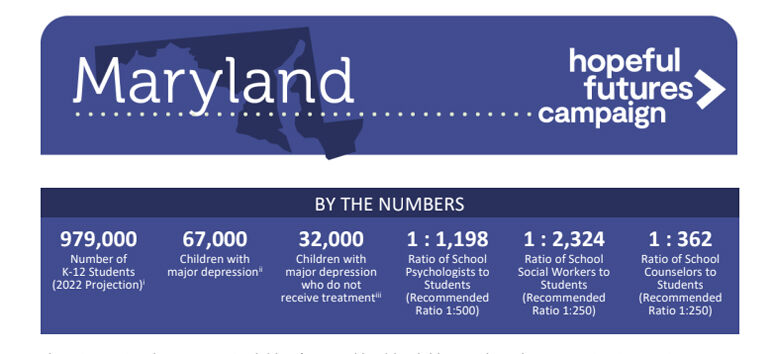
Virginia has one school psychologist for every 1,623 students, one school social worker for every 2,067 students and one school counselor for every 345 students.
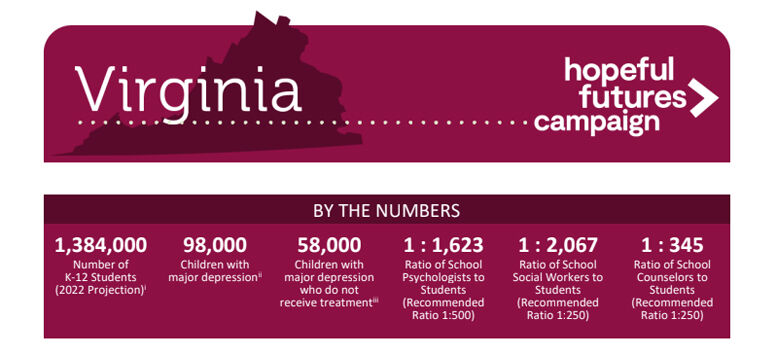
Only D.C. and Idaho exceeded the recommended ratio of one school psychologist for every 500 students.
The District has one school psychologist for every 410 students, one school social worker for every 365 students and one school counselor for every 511 students.
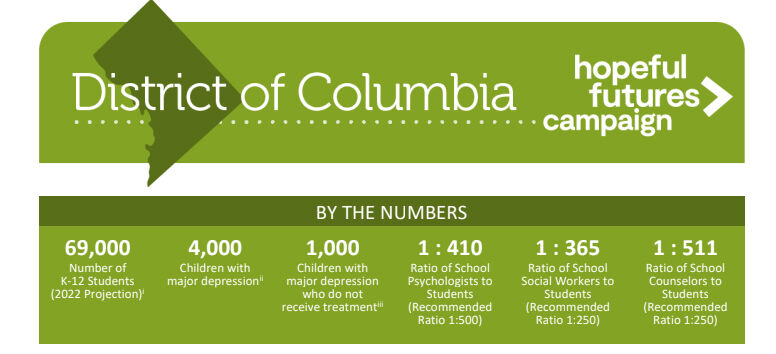
“When youth get support early, they have better outcomes and young lives are kept on track,” according to the report. “One of the most effective approaches to get youth the help they need is to meet them where they’re at-in schools-with comprehensive mental health systems.”
D.C., Maryland and Virginia do not require any regular well-being checks that can help identify students and staff who may need support, the report showed.
However, there were some areas of progress related to mental health education.
The study showed that Maryland requires “comprehensive health education standards include mental and emotional health.”
In Virginia, K-12 physical and health education “must include mental health and the relationship of physical and mental health.”
In D.C., health education standards “require K-12 health education programs to include mental health.”
“As our nation struggles to keep children in school, parents and educators alike are confronted with the increasingly complex mental health needs of children who are stressed out, anxious, depressed, and worse,” the report stated.
“Our goal is to bring comprehensive school mental health systems to every school in the country, so that every child has the opportunity to thrive.”
WTOP’s Matt Small contributed to this story.



